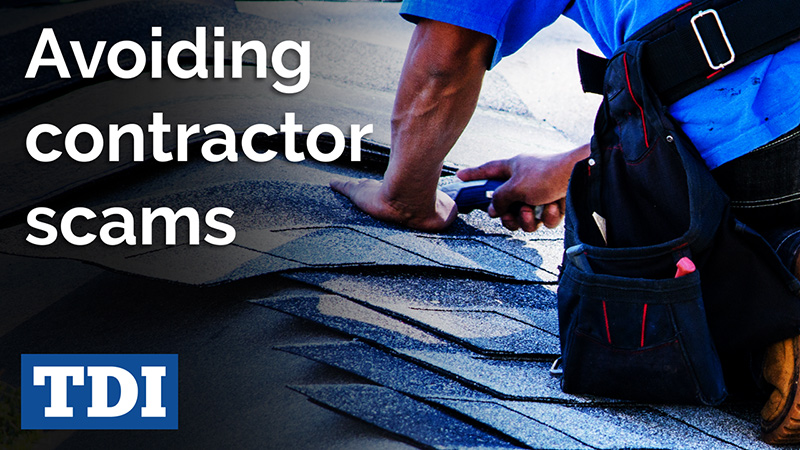-
Get more than one bid
Getting at least three bids will help you decide which offers may be too high or too good to be true. Your insurance adjuster can give you an idea of what the repair should cost. Bids should be on the company’s letterhead with a phone number and an address. Keep a copy of all agreements and warranty terms.
-
Watch what you sign
Read every document carefully before you sign. Scammers will try to get you to sign a contract by calling it an estimate or a release just to go on your roof. And don’t sign a contract with blank spaces. Shady contractors will fill in the spaces later with higher costs or work that’s different from what you wanted.
-
Beware of misleading language
Don’t sign contracts that say, “Homeowner agrees to the listed repairs for the value of insurance proceeds.” If you do, the contractor gets every penny from your insurance payment. Make sure the contract lists the materials they’ll use. Keep an eye out for defective or low-quality materials while work progresses.
-
Don't pay up front
Be wary if a contractor asks for a large or full down payment. After a disaster, it’s against the law for out-of-town contractors to ask for a down payment before they start.
-
Skip offers to waive your deductible
It’s against the law for a contractor to offer to waive an insurance deductible or work the deductible amount into a bid. If this happens, find a new contractor. You can also report it to the Texas Attorney General at 800-621-0508.

